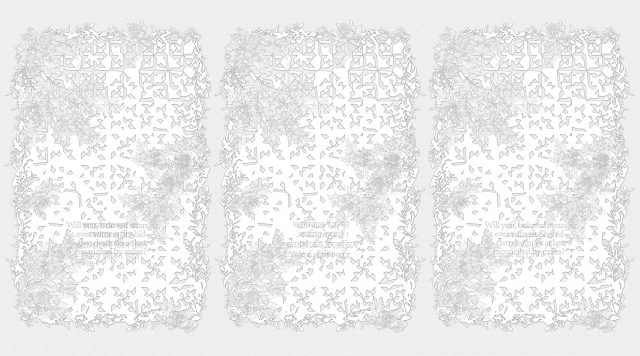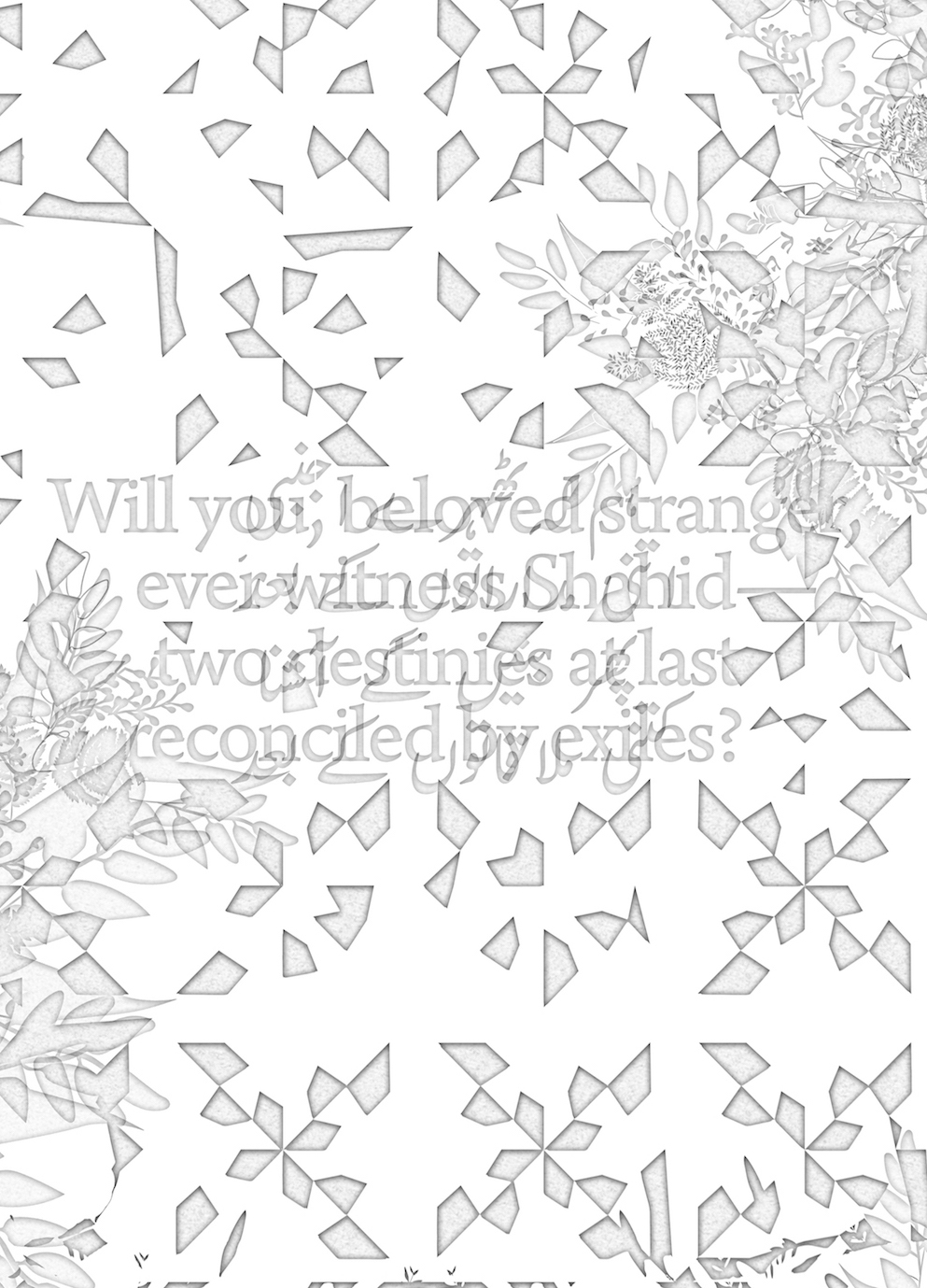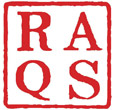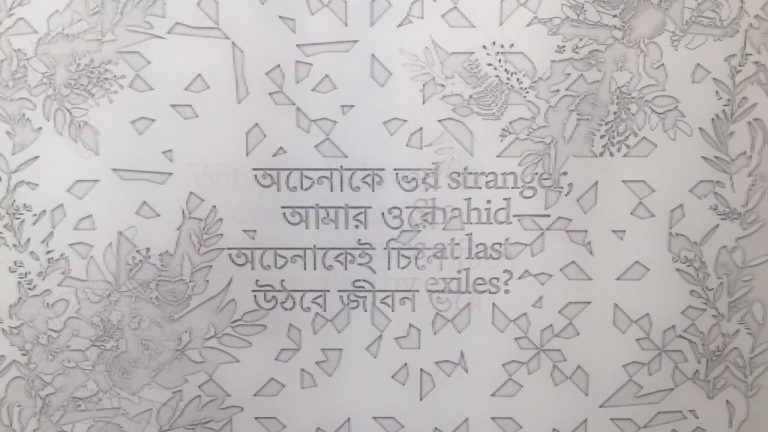
The Translator’s Silence
Shown at: Purdy Hicks Gallery, London (2017) | Gallery 400, University of Illinois, Chicago (2017) | Mathaf Arab Museum of Modern Art, Doha (2019)
Three lenticular panels
22 inches x 36.6 inches each
When familiarity breeds only contempt, or at best indifference, the slim hope there is for solidarity lies in the kindness of strangers. the close ties between the words ‘host’ , ‘hostility’ and ‘hospitality’…
hum ke thahrey ajnabi itni madaraaton ke baad
phir banai.ngain aashnaa kitni mulaqaton ke baad
we who have been rendered strangers, after so many travails
how many meetings will it take for us to embrace each other again
Faiz Ahmed Faiz
AAAchena-ke bhoy ki amaar ore ?
Achena-ke-i chiney-chiney uth-be jibon bhore
what fear have I of strangers,
the cup of life will fill by knowing the unknown
Rabindranath Tagore
Will you, beloved stranger, ever witness Shahid
two destinies at last reconciled by exiles?
Agha Shahid Ali
The care of strangers is the gentlest and the sharpest form of sedition.
India, Pakistan, Kashmir – so many names for so many states of quarantine. So much familiarity, so much contempt. Better the admission of a future mutuality of strangeness than the bitter explosive ancestral familiarity of hatred. At least there will be questions left to ask of each other.
None of the fragments is translated. The shift from one language to another is unmediated. Reading this work necessarily requires its viewer to find a ‘stranger’ -a person who speaks an unknown language to understand what it has to say. The work’s reading of the three fragments suggests that “stranger” may become the “beloved” when even adversarial destinies, such as are common across partitions and “lines of control,” are reconciled through the force of a willing encounter with all that is unknown in the other. This encounter, across languages, memories, desires and nightmares, may lead to a loss of words at first. Perhaps the strangers who undertake to meet each other this way will need to translate each other’s silences before they can listen to each other’s words. This take-away that takes the form of a fold between utterances, embodies a gift of that silence.
English, Bengali and Urdu/Hindustani are the primary working languages of the three members of the Raqs Media Collective; translation is their mother-tongue.






